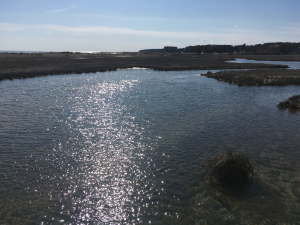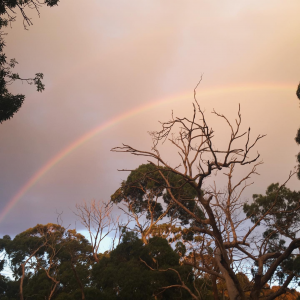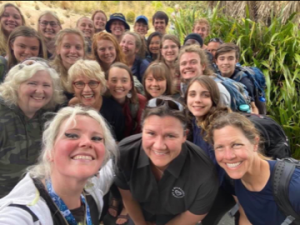As I sit in my little Massachusetts home right now and think back to my time in Australia, it feels like forever ago that we were playing at the beaches, hiking up Rangitoto in the hot southern sun, and indulging in numerous frozen desserts with Professor Ice Cream. Even though our time was significantly cut short, we still learned so much from the time we did have. Now that life consists of social distancing, quarantine, and paranoia, I think it is more important now than ever to remember some of the beautiful ways we have learned that nature recovers from trauma, and how other organisms care for one another.

Looking back through my journal, one of my favorite lectures that we received was from Nelson, NZ, by two DOC workers. In their presentation, they told us of the struggles Nelson has faced in terms of having mass beaching of whales on their coasts. They discussed how the community has come together to try and address the issue by saving whales and aiding them in hopefully returning to sea. While they cannot save every whale, the act of trying to help them has brought the little community close together, and saved the lives of many of these beautiful creatures. The thing I found most inspiring from this lecture, however, was not how humans have gathered to help (although this is certainly good), but rather how other whales look out for each other. Whales have such strong social bonds and empathy for one another that oftentimes when a whale gets beached, its loved ones will also beach themselves to be with the distressed whale. This often leads to self-sacrifice for these complex and empathetic beings. Upon learning this, I wrote in my journal: “This sort of self-sacrifice is extremely touching in my opinion, and it almost seems to surpass a human’s capacity for empathy in some ways…”. In times of a global pandemic, I think it is vital now more than ever to remember how important our bonds to other organisms are, and continue to support one another in these troubling times when humanity itself feels “beached”. Although at the time of writing my journal I felt skeptical about the human capacity for empathy, I am starting to see some truly remarkable acts by fellow humans during the dark times of this pandemic. From healthcare workers working day and night, to community members making masks, and even delivering groceries to elderly members of the community, people are risking their safety to help others. I think this is truly inspiring, and I hope our global community remembers these values long after the pandemic subsides.

Another lecture I look back fondly on from our time abroad was our lecture at the Orokonui Ecosanctuary in Dunedin, NZ. Our energetic and positive leader Tahu showed us the stunning ecosystem of that area, which plants to consume, and how the forest has adapted over many years to what it is today. The earth has been through volcanic eruptions, ice ages, droughts, floods, extinctions, and so much more. It seems that there is a resilience about our planet, and if we make the necessary choices to respect the land, there is hope of a better future. Tahu also emphasized to us the importance of having gratitude in our everyday lives. It may seem hard to feel grateful for the situations we find ourselves in now, but I am certain there is always something to be grateful for. if we choose to appreciate the earth and each other as profoundly as they taught us to at Orokonui, I think there is hope.

– Carolyn